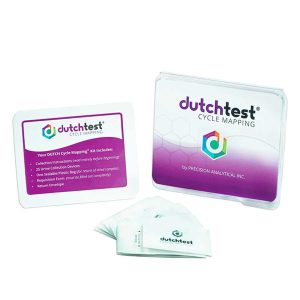-
- 6-OH-Melatonin-Sulfate: Measures melatonin production, which affects sleep quality and overall health.
Why DUTCH Test is a must for HRT
The Dutch test is a comprehensive hormone test that measures hormones and hormone metabolites (broken down hormones) in urine. It is an effective way to monitor the levels of hormones used in hormone replacement therapy (HRT) such as oral progesterone, vaginal hormone creams, patches and pellets.
The Dutch test was designed to be optimally effective for most forms of HRT. It uses unique methods for improved monitoring of oral progesterone and vaginal hormones. The Dutch test measures melatonin levels as well.
It’s important to note that the Dutch test is not the only hormone test available. Other tests include blood tests and saliva tests. However, the Dutch test has been shown to be more accurate than other tests.
Why Women Should Take The DUTCH Test
If you’re experiencing symptoms like fatigue, anxiety, insomnia, depression, motivation, libido, estrogen dominance, and stress, it might be time to consider the DUTCH test.
This test can help identify the underlying cause of your symptoms so you can start addressing it.
But what if you’re feeling good and don’t have any symptoms? Should you still get tested?
It’s up to you, but we think it’s always a good idea to have a clear understanding of how your body processes hormones. That’s why we recommend the DUTCH Complete hormone test for all women, even if you’re feeling great.
Stay ahead of potential health risks by understanding your hormone levels. The results from this test can help you reduce the risk of illnesses such as breast cancer, ovarian cancer, and fibroids, especially if you have a family history of these conditions.
Don’t procrastinate, be proactive and informed about your health by keeping track of your hormones.




